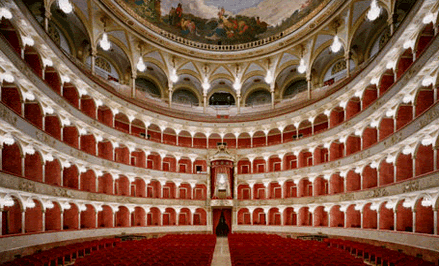It’s wonderful to see a truly grand opera – with more than 50 people onstage at once – that feels intimate at the same time.
That’s exactly what Thomas Ades has done with his opera The Tempest, seen in its U.S. premiere tonight at The Metropolitan Opera.
Robert Lepage’s production was masterful and fully equal to the score. It used an intriguing conceit of an opera within an opera. I’m not sure what it was supposed to mean, but it proved visually interesting.
The approach set Act I upstage, looking out on what appeared to be a classic European opera house.
Act II turns the idea around, playing out beneath the proscenium with the audience viewing the action from the house.
Act III was first played out backstage and then transported to a section view from stage right.
The staging hit all the expected marks. But Lepage’s threw Ina few curve balls, including a bit of business in Act III that appeared to be an homage to Broadway’s “Spider-Man: Turn Off The Dark.”
Without spoiling the surprise, think a cross between Arachne and Green Goblin from the troubled musical’s original iteration.
Ades knows how to do opera by the rules and still create something fresh. This isn’t avant garde opera, but simply great opera in a modern idiom. Ades is one of our greatest living opera composers
The performance was conducted by the composer, and The Met Orchestra rose ably to the challenge under his baton.
The singing was uniformly great, with exceptional turns by Simon Keenlyside as Prospero, Isabelle Leonard as his daughter Miranda and Audrey Luna as the ephemeral Ariel.
Thano goodness for the Met Titles, though, as many of Ariel’s lines were nearly in the “only dogs can hear” range. I had to wonder if her repeated expression of “bow-wow” was a direct comment on that. Her character was a little tough to connect with at first. But she grew on me after awhile.
The premiere lived up to my expectation that it would be a Met must-see. A half-dozen or so performances remain. Don’t miss out. Get tickets now at The Met’s website.

